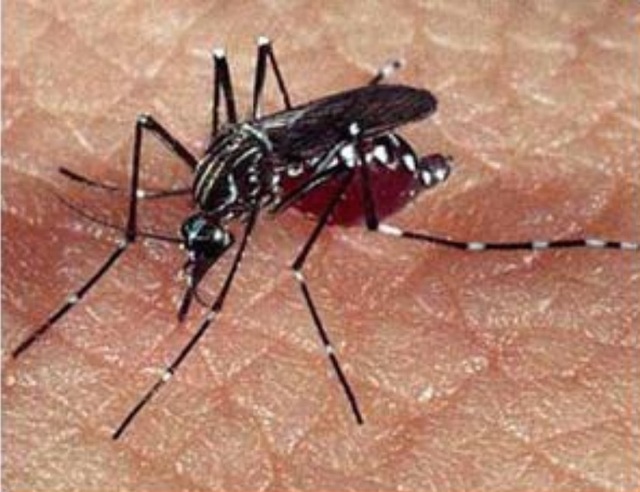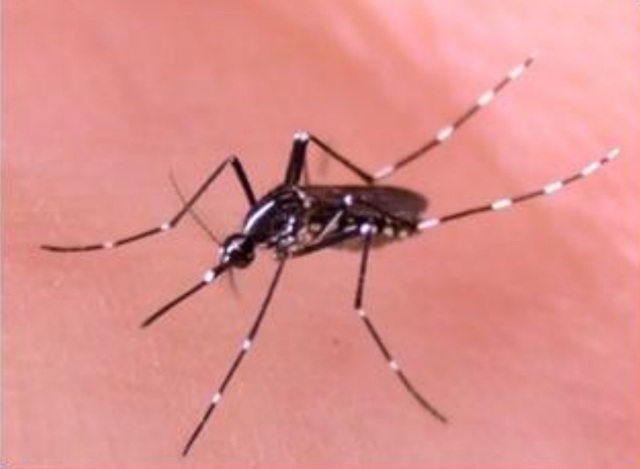At least two people, and likely four more, have been infected with dengue fever after being bitten by mosquitoes on the Big Island.
In a statement issued Thursday afternoon, the state Department of Health reported it was investigating two confirmed cases, and called four others “probable.”
“The department sent out a medical advisory to Hawaii County clinicians earlier today to alert them and urge them to report suspect dengue fever cases,” the statement reads.
While dengue fever is not endemic to Hawaii, the state does have the mosquito species capable of transmitting the disease, said state epidemiologist Dr. Sarah Park.
“It’s likely an infected traveler infected the local mosquito population, which led to this cluster, so we want the public to be aware of this mosquito-borne disease and the steps they can take to prevent infection,” she said.
Local environmental health assessments have not turned up significant mosquito activity in the affected area, said Hawaii District health officer Aaron Ueno.
“As a precautionary measure, the department is conducting mosquito prevention activities, such as spraying with consent from property owners,” he said.
Deputy state epidemiologist Dr. Melissa Viray said Thursday afternoon she could not identify the location or locations where the dengue fever was reported, because it could give Big Isle residents a “false sense of security.”
“There is a rationale for this,” she said. “The island, even though it’s called the Big Island, is not very big. People can drive across it in a couple of hours and spread something. My investigation is still ongoing, and we’re still looking at where people went and what they have in commonalities. … It might be very misleading to say where these cases occurred.”
Viray asked that area residents be aware of the mosquito-borne illness and be on the lookout for symptoms.
Symptoms typically begin within a week after a bite by an infected mosquito and can include fever, joint or muscle pains, headache or pain behind the eyes and rash. People who have the symptoms should contact their health care provider and avoid further exposure to mosquitoes, which is also the best means of prevention.
“Dengue virus is most often transmitted through the bite of an infected mosquito,” reads Thursday’s statement from the Health Department.
“Travelers to areas with infected mosquitoes where dengue fever is endemic are at the highest risk of acquiring the disease. Mosquitoes breed in areas of standing water (such as planters, old tires and pet water bowls). Use mosquito repellents containing 20-30 percent DEET and wear long sleeves and pants in areas where mosquito-borne disease is a concern.”
For more tips on mosquito control, go to http://health.hawaii.gov/san/files/2013/06/Vector-mosquitohandout.pdf.
For more information on dengue fever, visit the DOH website at http://health.hawaii.gov/docd/dib/disease/dengue/.
Email Colin M. Stewart at cstewart@hawaiitribune-herald.com.









